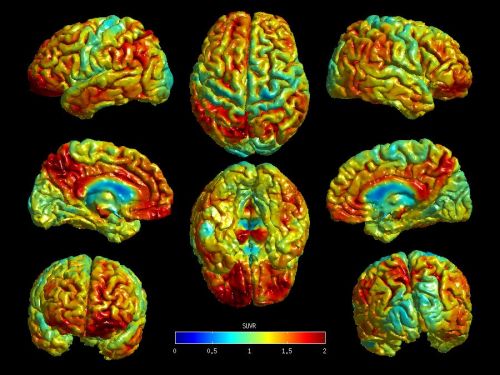Neuroscience
The brain is unarguably the most complex organ in the human body. It regulates basic bodily functions like breathing, heartbeat and temperature, yet at the same time is involved in emotion, reason and intellect – the things that truly make us human. While we now know more about the brain than we ever did, there is still much more waiting to be learnt. Imaging helps us build a better understanding of the brain by allowing us to see its structure and function.

Images from an Amyloid PET scan of an Alzheimer’s disease patient – study done in collaboration with
A/Prof Dr Christopher Chen Li Hsian
At CIRC, the neuroscience theme revolves around investigating functions and important diseases affecting the brain. Using a wide range of imaging methods including structural, functional and metabolic imaging, we are able to study how factors such as brain morphology, white matter structure, functional connectivity, cerebral perfusion and specific metabolites play a role in disease etiology and progression. Current research areas include the study of stroke and stroke rehabilitation, Alzheimer’s disease, dementia, schizophrenia, and cognitive functions of breast cancer patients.
